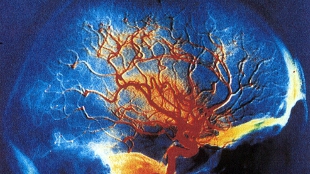 FLICKR, ADRIGUEarlier this year, President Obama kicked off the BRAIN (Brain Research through Advancing Innovative Neurotechnologies) Initiative with great fanfare, announcing a $100 million funding grant to start a “bold new research effort” aimed at unlocking “the mystery of the three pounds of matter that sits between our ears.” This is great news for scientists who study brain function in the sense that any funding and high-level attention is a welcome addition to a comparatively underfunded, underappreciated field of study. But it’s hardly a grand national challenge on par with the Apollo and Human Genome Project to which it’s sometimes compared.
FLICKR, ADRIGUEarlier this year, President Obama kicked off the BRAIN (Brain Research through Advancing Innovative Neurotechnologies) Initiative with great fanfare, announcing a $100 million funding grant to start a “bold new research effort” aimed at unlocking “the mystery of the three pounds of matter that sits between our ears.” This is great news for scientists who study brain function in the sense that any funding and high-level attention is a welcome addition to a comparatively underfunded, underappreciated field of study. But it’s hardly a grand national challenge on par with the Apollo and Human Genome Project to which it’s sometimes compared.
In fact, other countries are taking a much more aggressive approach to advancing brain science. In China, the Brainnetome project was launched nearly 10 years ago, and the European Union is pouring $1.5 billion into its Human Brain Project. As Máire Geoghegan-Quinn, European Commissioner for Research, Innovation and Science, recently said, “healthy brains are essential for happy individuals and families, for an efficient work force, for innovative products and services. . . . Therefore, investment in brain research is an intelligent investment, especially in times of scare resources, as it can help avoid even higher costs to society in the future.”
Indeed, healthcare costs are a chief culprit in government budget shortfalls, and a growing portion of those costs are brain-related. A recent RAND Corporation ...























